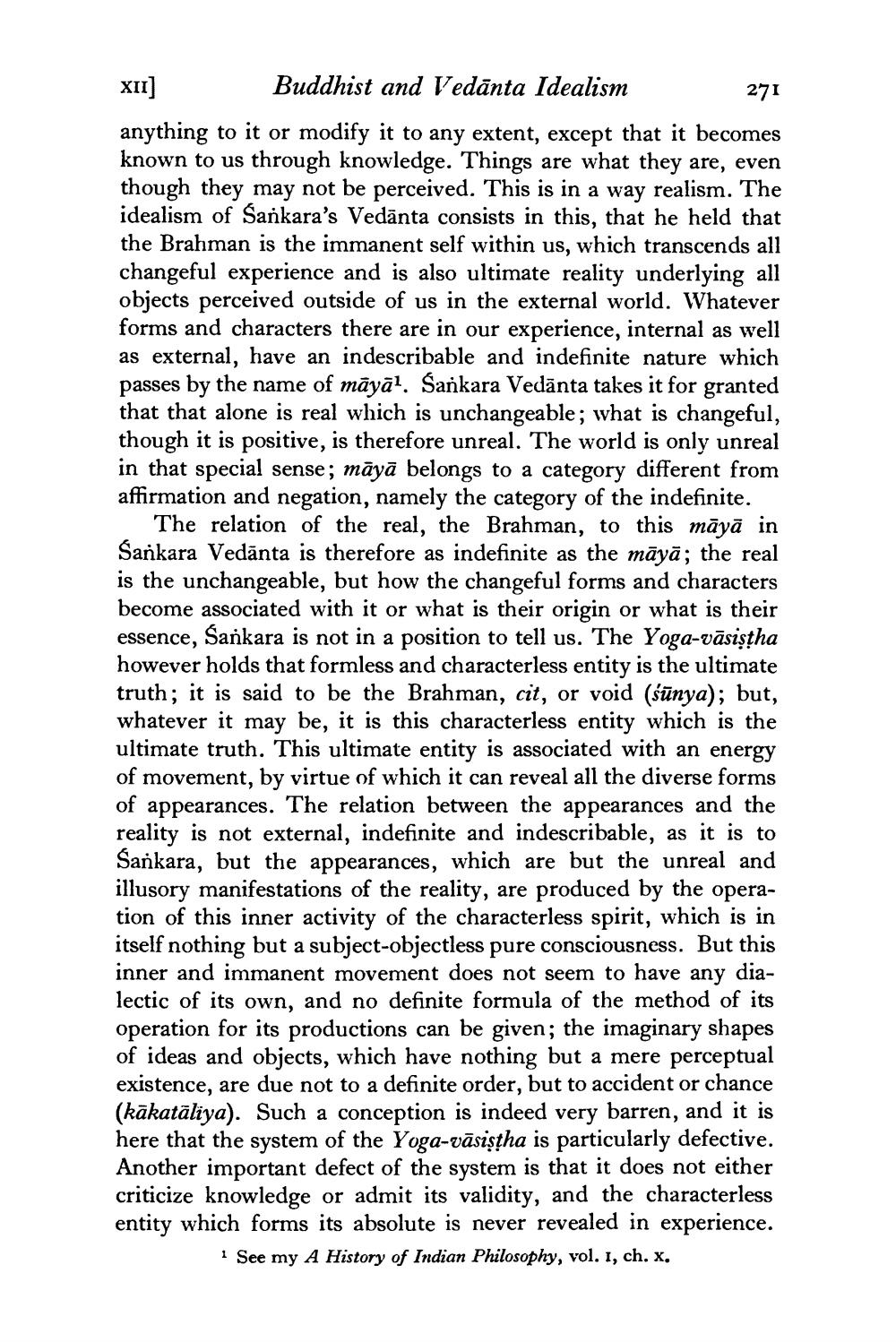________________
XII]
Buddhist and Vedanta Idealism
271
anything to it or modify it to any extent, except that it becomes known to us through knowledge. Things are what they are, even though they may not be perceived. This is in a way realism. The idealism of Sankara's Vedanta consists in this, that he held that the Brahman is the immanent self within us, which transcends all changeful experience and is also ultimate reality underlying all objects perceived outside of us in the external world. Whatever forms and characters there are in our experience, internal as well as external, have an indescribable and indefinite nature which passes by the name of māyā1. Šankara Vedānta takes it for granted that that alone is real which is unchangeable; what is changeful, though it is positive, is therefore unreal. The world is only unreal in that special sense; māyā belongs to a category different from affirmation and negation, namely the category of the indefinite.
The relation of the real, the Brahman, to this māyā in Sankara Vedanta is therefore as indefinite as the māyā; the real is the unchangeable, but how the changeful forms and characters become associated with it or what is their origin or what is their essence, Sankara is not in a position to tell us. The Yoga-vāsiṣṭha however holds that formless and characterless entity is the ultimate truth; it is said to be the Brahman, cit, or void (sunya); but, whatever it may be, it is this characterless entity which is the ultimate truth. This ultimate entity is associated with an energy of movement, by virtue of which it can reveal all the diverse forms of appearances. The relation between the appearances and the reality is not external, indefinite and indescribable, as it is to Sankara, but the appearances, which are but the unreal and illusory manifestations of the reality, are produced by the operation of this inner activity of the characterless spirit, which is in itself nothing but a subject-objectless pure consciousness. But this inner and immanent movement does not seem to have any dialectic of its own, and no definite formula of the method of its operation for its productions can be given; the imaginary shapes of ideas and objects, which have nothing but a mere perceptual existence, are due not to a definite order, but to accident or chance (kākataliya). Such a conception is indeed very barren, and it is here that the system of the Yoga-vāsiṣṭha is particularly defective. Another important defect of the system is that it does not either criticize knowledge or admit its validity, and the characterless entity which forms its absolute is never revealed in experience.
1 See my A History of Indian Philosophy, vol. 1, ch. x.




